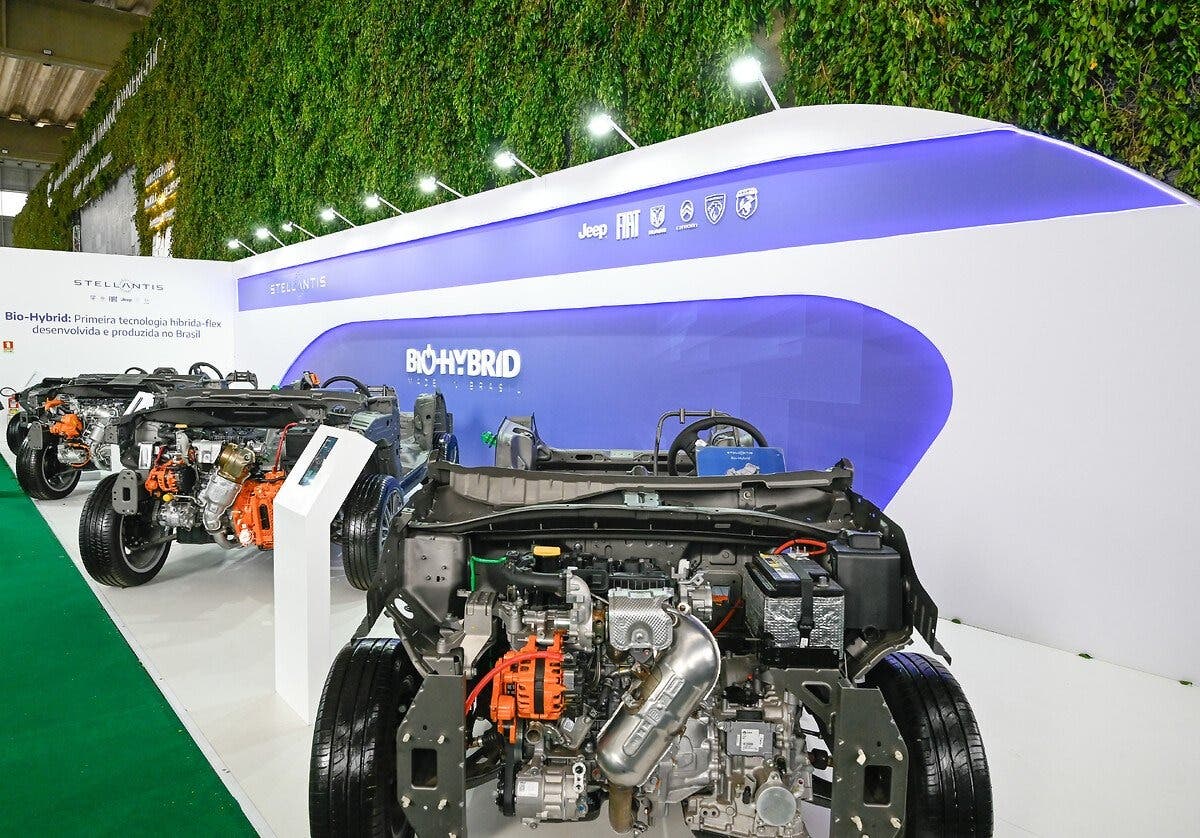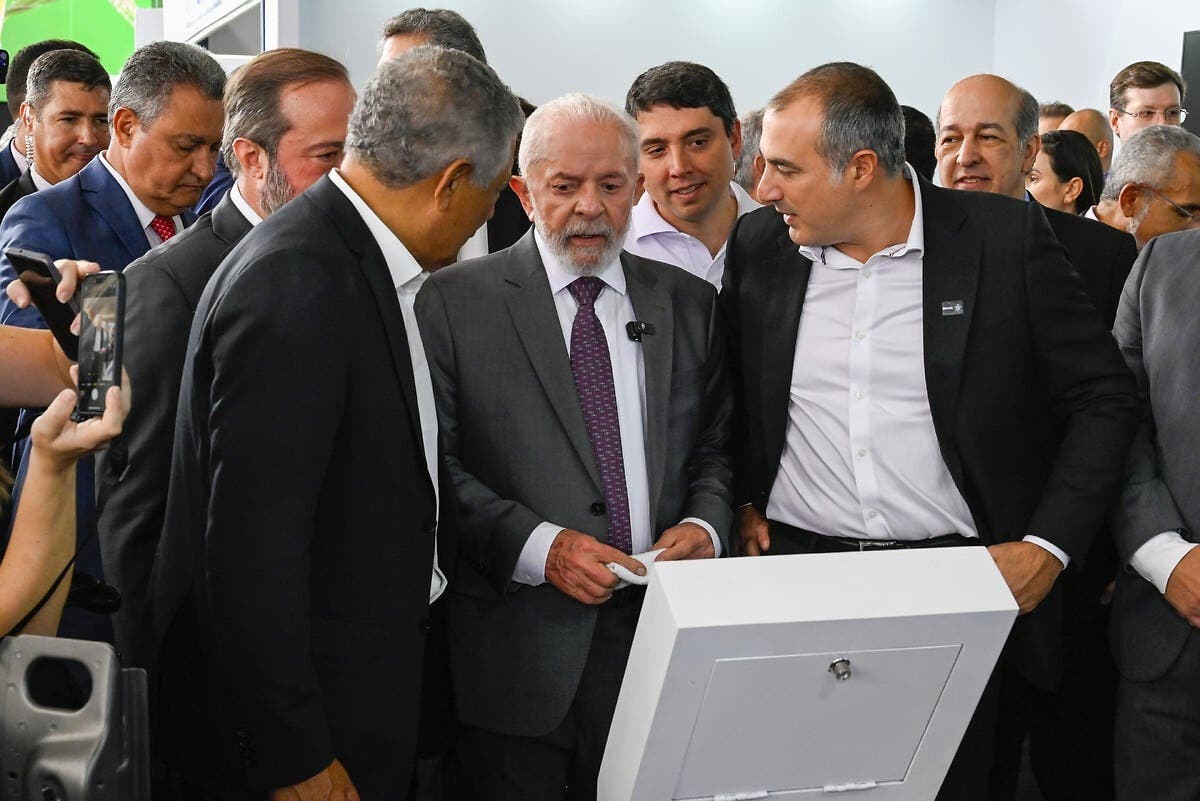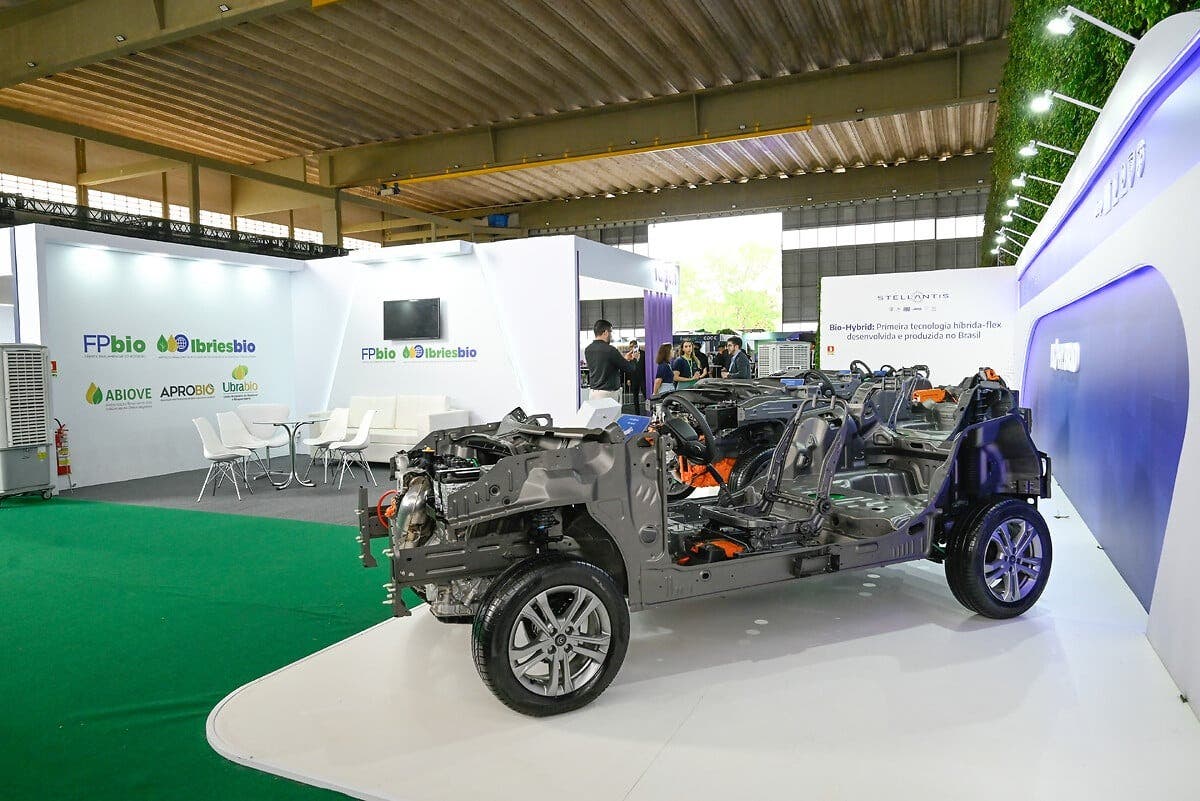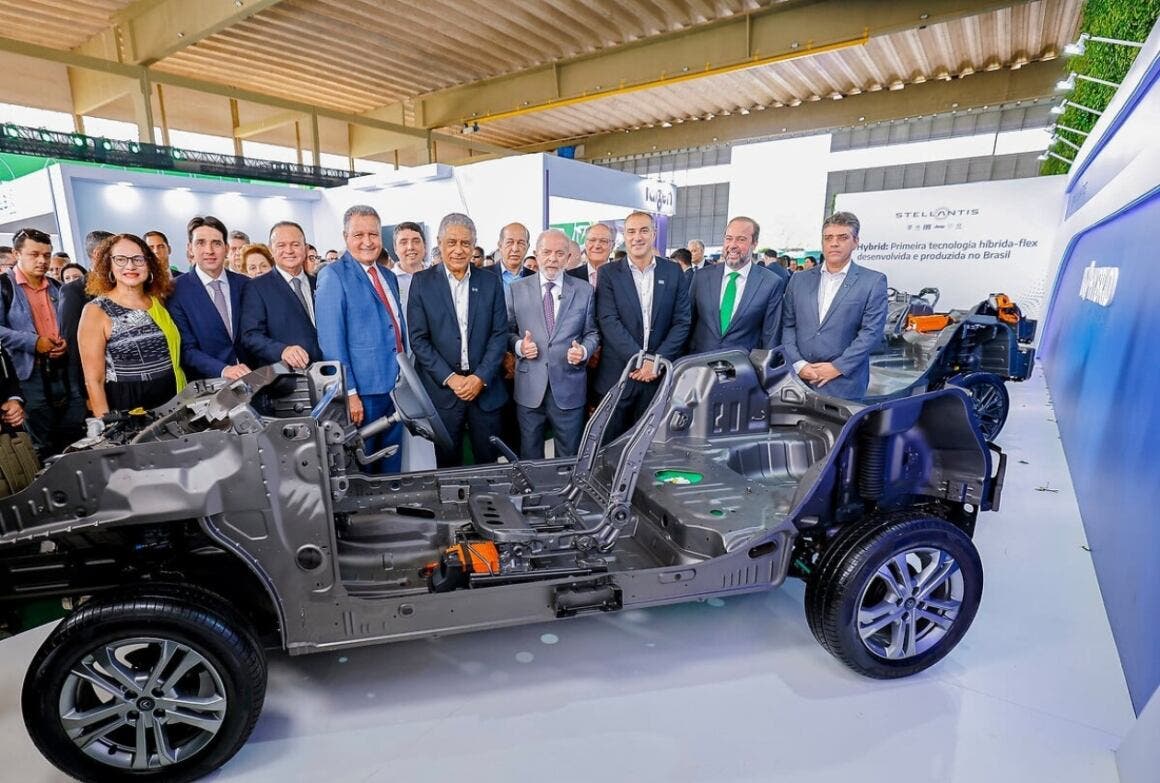Stellantis is continuing to innovate in the automotive sector by introducing its advanced Bio-Hybrid technology in Brazil. This solution was created to combine electrification with flexible engines powered by biofuels. An important solution that represents a significant step toward a more sustainable future for mobility.
Stellantis advances in Brazil
Stellantis participated this Tuesday, or October 8, in the Liderança Verde Brasil Expo event, during which it was sponsored by the Ministry of Mines and Energy, Brasil. During the celebration, President of the Republic Luiz Inácio Lula da Silva held the Sanctioning Ceremony of the Fuel Law of the Future.
During this important event, Stellantis Group put on display four models equipped with the new Bio-Hybrid technology. This is an environmentally friendly solution that combines electrification with flexible engines powered by biofuels (ethanol) at three different levels. In addition, it was also announced that the first model to be launched in the domestic market equipped with this technology will be launched next month in November.

Investment for South America
Earlier this year, the company Stellantis announced a substantial investment of as much as 32 billion reais in Brazil and all of South America. At the center of the theme was precisely the Bio-Hybrid technology we are talking about, which is already being produced right in Brazil. In fact, it is precisely in the South American country that the company’s global center for technology development is located.
In addition, with this major investment, four new platforms, 40 new models, and also three powertrains will also be designed that will be introduced to the market in a phased manner, starting as early as 2024. These new technologies include Bio-Hybrid; Bio-Hybrid e-DCT with electrified dual-clutch transmissions; Bio-Hybrid Plug-in; and BEV (100% electric), all of which will be produced locally.

The Emanuele Cappellano’s words
Emanuele Cappellano, Stellantis’ president for South America, also spoke during the event. Cappellano wanted to confirm that it remains essential for Stellantis to accelerate the local development of new technologies that combine electric and flexible engines. In addition, the use of biofuels such as ethanol is always encouraged. Precisely the latter, is a very competitive and efficient alternative for the country to move toward decarbonization. Moreover, this initiative is exactly in line with Stellantis’ global project of achieving zero emissions by 2038.
Also on display at the event held in Brazil were models that are part of the range of Stellantis Group brands from Brazil. We are talking about Fiat Strada, Jeep Compass, Peugeot 2008, Citroën Basalt and the Abarth Fastback. All vehicles that are equipped with Flex engines produced in Brazil.

Stellantis in tune with biofuel
The automotive company had long been one of the world’s major leaders in the application of biofuel engines. At the time, it was in fact done with Fiat, specifically with the launch of the 147 model, the world’s first mass-produced ethanol car at the Betim plant.
The bio-hybrid technology is entirely flexible in various models that are produced by Stellantis. It is also compatible with all of the company’s production lines located in Brazil. These new technologies will help improve the level of Brazilian industry, as well as Stellantis’ position in the industry.

